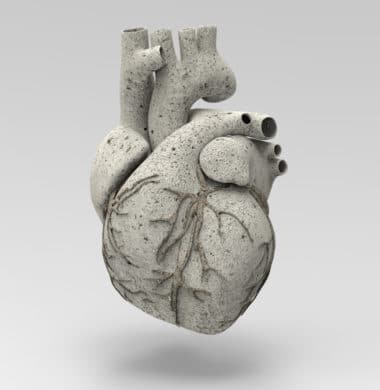Does a High Calcium Heart Score Mean I Have a Blockage?

A calcium heart score test is a powerful and valuable tool in gauging the health of your heart. Properly used, it can detect when a person with no heart-related symptoms might be facing a high risk of a heart attack in the near future. However, to get maximum value from a calcium heart score, you must understand what it does and doesn’t tell us about the health of your heart.
What Is a Calcium Heart Score Test?
In a calcium heart score test, we use a CT scan to measure the amount of calcified plaque in the coronary arteries. Plaque builds up in the coronary arteries, and it often incorporates calcium into the plaque. This leads to hardening of the arteries and could eventually lead to blockages that will cut off the heart’s supply of blood and, therefore, oxygen.
The calcium heart score test aims to assess a person’s risk for heart attacks in the near future, essentially in the next five years or so.
What a Calcium Heart Score Tells Us
A calcium heart score is an instrumental piece of information because it tells us a lot about your potential for a heart attack in the near future. We express the calcium heart score as a percentile, comparing you to other patients based on your age and gender. A high calcium heart score means you have a high amount of calcified plaque. In other words, you have a lot of buildup in your coronary arteries. This buildup is likely to cause a heart attack in the next five years or so. How likely? We don’t know for sure, but when we give you your calcium heart score, we will talk to you about what the science says in relation to your score.
See our article on How to Lower Your Calcium Heart Score.
What a Calcium Heart Score Doesn’t Tell Us

- Whether you have an actual blockage
- Your absolute heart attack risk
- When or if you will have a heart attack soon
Although CT scans can produce detailed images of tissues when set up to do so, that is not what a calcium score does. Instead, a calcium score measures the amount of calcium in your coronary arteries. It doesn’t tell us that any of your arteries are actually blocked or detect where blockages might occur.
Your calcium heart score also doesn’t tell us your absolute heart attack risk. Studies show there is a strong correlation between the calcium score and a person’s heart attack risk, but it’s not conclusive. One blind spot of the calcium heart score test is that it only detects calcified (hardened) plaque, and you may have soft plaque blocking your arteries. Consider your calcium heart score as a “floor” measurement. Your heart attack risk is more likely to be higher than the score shows than to be less.
Finally, although calcium heart scores are predictive, they’re not completely certain. Having a high calcium score doesn’t mean you will have a heart attack. Nor does it tell us when a heart attack might occur.
South Denver Cardiology Offers Diagnostic Testing
What is good about the calcium heart score is that it tells us how aggressively we have to act to manage our heart attack risk. We will know whether we can ease up on some medication or lifestyle changes or increase our recommendations for exercise, diet changes, and medications. We might also decide that it’s essential to conduct further diagnostic testing or use interventional cardiology like angioplasty to remove the blockage. To gauge your risk of a heart attack in the near future, please call 303-744-1065 or contact us online to schedule a calcium heart score test at South Denver Cardiology Associates, with locations in Littleton, CO, and surrounding areas.
- Does Vaping Increase Your Risk of Heart Disease? - July 7, 2025
- Lifestyle Factors That Increase Your Risk of Heart Disease - May 26, 2025
- 6 Tips for Exercising Outdoors with a Heart Condition - May 19, 2025
Sign Up
As with any health concerns, your specific treatment program should be discussed thoroughly with your primary care physician as well as any specialists who may need to be consulted – like a cardiologist.
Sign Up
